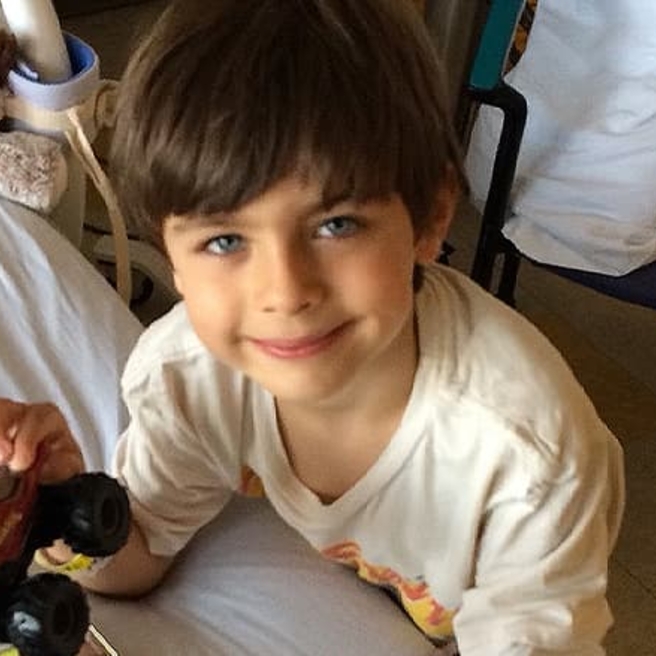Division of Pulmonary and Sleep Medicine

When your child struggles to breathe, it's scary for them — and for you. Our pediatric pulmonologists in the Division of Pulmonary and Sleep Medicine at Children's Hospital of Philadelphia (CHOP) provide testing, support and advanced treatments for whatever is causing your child's breathing challenges. For both short-term and chronic problems, CHOP offers inpatient and outpatient pulmonary care that is ranked among the best in the nation.
Your child will be cared for by one of the largest teams of pediatric pulmonologists in the country. Together, we have expertise in a wide range of respiratory conditions.
How we serve you
Your child has access to dedicated teams with expertise in common conditions, like asthma and sleep apnea, and in rare and complex diseases, interstitial lung disease and chronic respiratory insufficiency. Our multidisciplinary programs offer advanced treatment options and support to help your family at every step.
-
Asthma Program -
Airway Disorders Center -
Cystic Fibrosis Center -
Heart/Lung Transplant Program -
Home Care Program -
Interstitial and Diffuse Lung Disease Center -
Lung Transplant Program -
Neuromuscular Program -
PAPA Clinic -
PFT Laboratories -
Post-preemie Lung Disease Clinic -
Primary Ciliary Dyskinesia Center -
Pulmonary Advanced Diagnostic and Interventional Bronchoscopy Center -
Pulmonary Hypoplasia Program -
Rare Lung Diseases Center -
Sleep Center -
Sweat Testing -
Technology Dependence Center
Conditions we treat
Whether your child has a common breathing problem or a rare pulmonary condition, our experienced team provides cutting-edge care for a wide range of conditions, including the following:
-
Airway tumors -
Asthma in children - Bedtime fears and other behavioral sleep problems
-
Breathing problems -
Breathing problems in children with neuromuscular conditions -
Bronchopulmonary Dysplasia (BPD) -
Children’s interstitial and diffuse lung disease (ChILD) - Circadian rhythm sleep disorders
-
Complete tracheal rings -
Congenital diaphragmatic hernia (CDH) -
Cystic fibrosis -
Esophageal atresia and tracheoesophageal fistula (EA/TEF) -
Foreign body aspiration - Insomnia (difficulty falling or staying asleep)
-
Laryngomalacia -
Laryngotracheal cleft (LTC) -
Muscular dystrophy -
Narcolepsy and other causes of daytime sleepiness -
Obstructive sleep apnea -
Parasomnias, including sleep terrors, sleepwalking, and nightmares -
Primary ciliary dyskinesia (PCD) -
Recurrent croup -
Recurrent respiratory papillomatosis - Restless leg syndrome and other sleep-related movement disorders
-
Shwachman-Diamond syndrome -
Sickle cell disease - Sleep disordered breathing (including sleep-related hypoventilation)
-
Snoring -
Spinal muscular atrophy (SMA) -
Stridor (noisy breathing) -
Tracheal stenosis -
Tracheomalacia

What makes our Pulmonary and Sleep Medicine care special
When your child is having trouble breathing, experience matters. Our exceptional care puts us among the top hospitals for pulmonary care in the nation, as ranked by Newsweek and U.S. News & World Report’s prestigious Honor Roll of Best Children's Hospitals.

Meet your team
No matter your child's specific needs, our team of pediatric pulmonology and sleep experts is here to provide the best possible care.

Our locations
Access pulmonary and sleep care in one of our many locations throughout the region.

Our research
Your child deserves innovative, breakthrough care. Our active research programs seek to uncover the root causes of lung diseases and discover new treatments and cures.

Pulmonary and Sleep Medicine resources
These resources will help you find answers to your questions and learn more about your child's lung condition.

Resources for professionals
Everything you need to support your patient’s health, created and updated by our CHOP community of experts.

Your child's Pulmonary and Sleep Medicine appointment
Knowing what to expect at their Pulmonary and Sleep Medicine appointment can help your child — and you — feel prepared. This spells out what you should bring and previews how a typical appointment unfolds.
Your donation changes lives
Your gift of any size helps us discover breakthroughs for children with lung diseases.


